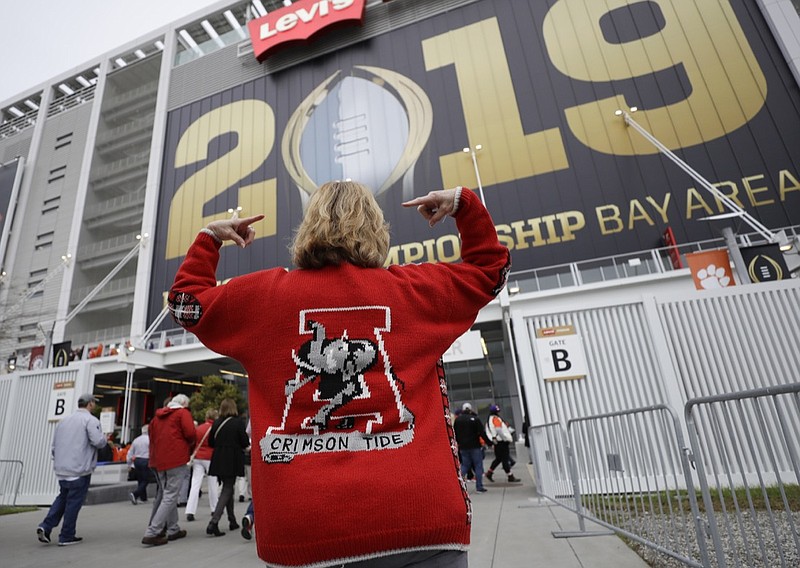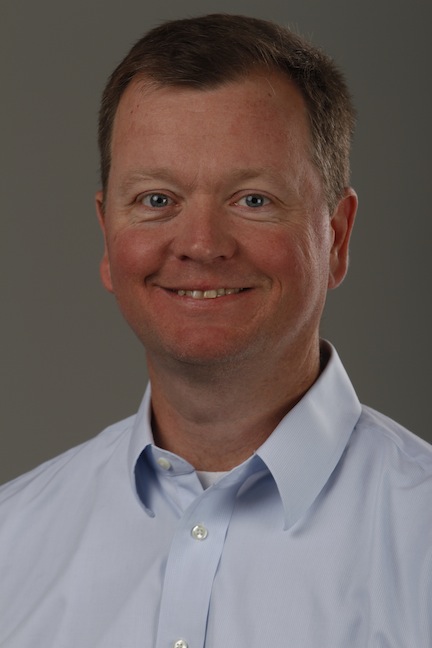Monday night the national college football title was decided.
Deadlines prevented me from telling you who won. (I picked Alabama. Was I right?)
But there are a slew of facts that are undeniable from this season's reunion between Clemson and Alabama.
Those two programs are the best in the country. And being the best in almost everything comes with a slew of perks.
Among them are the advantages of recruiting the best, demanding more from your customers and detailing the successes of your enterprise. Those are not just sports comparisons; those are staples of every endeavor in almost every walk of life.
How big is college football in particular, and college sports in general?
Want to guess the number of states in these United States that have a college sports coach as their highest-paid employee?
Sure, around these parts it's pretty clear that football rules the day - or even basketball if you are in Kentucky - so if you guess a dozen or 15 or so, that's a good starting point.
But it's not even half.
There are 39 states, according to state records in 2017, that paid a basketball or a football coach more than any other employee in their state. The 11 that looked in other directions are Hawaii, Alaska, Delaware, Maine, Massachusetts, Montana, New Hampshire, New York, North Dakota, South Dakota and Vermont.
And for the guys like Alabama Coach Nick Saban or Clemson Coach Dabo Swinney - guys who are now the top-paid guys in Alabama and South Carolina - the return on the investment is unbelievable.
In the decade of dominance that has been Saban's tenure, the only thing that has been more impressive than the Tide's winning ways has been the way the winning has affected the university as a whole.
In the days before Saban, Alabama had an enrollment topping 20,000 for the first time ever in 2003.
Heading into the fall of 2016, Alabama received more than 42,000 applications. Read that again.
Now, know that when an application increase of that magnitude comes, normally a dip in qualified students follows. For Alabama, from 2006 to 2016 the average ACT score went from 24.2 to 27.07 and the average GPA for freshmen went from 3.4 to 3.69.
Also of note is this: More Alabama students are from out of state than in state, and that has been the case since 2008, which means almost double tuition fees. In 2004, almost 72 percent of freshmen were from Alabama.
What other noteworthy push has Alabama made than becoming the face of college football and presenting the opportunity for prospective students across the country to see the school in the brightest of spotlights?
Yes, that has become part of the Tide's college sports success - before Saban, Alabama won national titles in football and gymnastics only, and since Saban arrived, Alabama has won national titles in football, gymnastics, men's and women's golf and softball - but also the growth of an entire university and the town.
As for the town, the population of Tuscaloosa in 2006 before Saban arrived was 86,158 in the city and 175,339 in the county. According to the U.S. Census on July 1, those numbers were up to 99,543 and 206,192, respectively. According to the Chamber of Commerce in the city, there has been more than $4 billion in new construction since 2005.
If Saban stays at Alabama until 2024, he will be paid more than $65 million. And he's worth every penny of it considering the return on investment.
And that means, on this day especially, in addition to addressing the needs of the university as a whole, the importance of football at the University of Tennessee - a place that has every bit as much passion and potential impact - should not be forgotten.
Contact Jay Greeson at jgreeson@timesfreepress.com or 423-757-6343.

